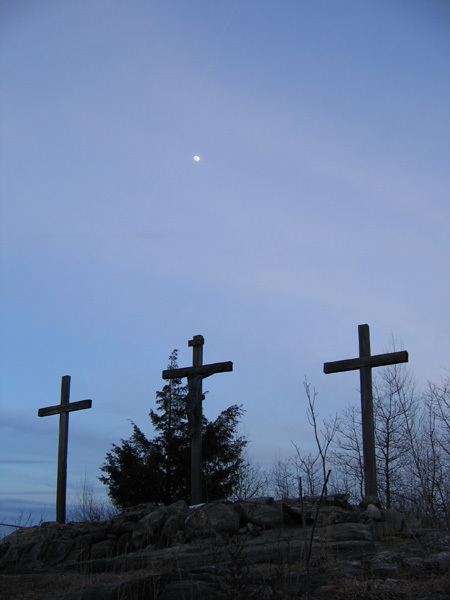The Specific Truth
2 Ιουνίου 2011
The Truth, spoken in general, is, perhaps, the most easily spoken truth in all the world. It smooths over the rough edges of hard truth and says more easily that to which all can agree. If all can agree – it is not probably the truth – or it is not a truth worth speaking.
As a priest of the Orthodox Church in America, I find the present time to be one in which the truth is both difficult to discern and difficult to speak. My policy on this blog has always been to avoid the “politics” of the moment and to write of things of greater importance. The politics of the moment are among those things hardest to discern. None of us have enough information to speak with clear authority – and we are often compromised by our own allegiances and friendships.
However, I do believe in truth – not the truth that serves only one point-of-view, not a truth that paints itself as all white while painting its opponent as all black. In the long span of human history, such characterizations have rarely proved to be entirely true.
First off, truth is not simply an accurate account of events. Truth is defined in and by a relationship with Jesus Christ. We have all encountered “masters of the truth” who while offering an irrefutable account of events, have somehow departed from the truth as it is in Christ. Telling the truth is a means of our salvation, not a means of gaining an upper hand or of winning battles. Christ has no interest in the upper hand or in winning battles
All of this is to say that in Christ, there can be no partisanship. Truth judges us all and makes our partisan commitments to be without meaning. Many of our commitments are but a thin disguise for our passions or the false truth of the ego.
Many of the positions of modernity argue for a form of truth that is rather malleable. That we must never offend each other is not a commandment – though some take a perverse pleasure in giving such.
The history of the Church is replete with Bishops, priests and laity who believed that their great mission in life was to rescue the Church from one error or another, just as today there are many (in various churches and elsewhere) who have a deep need to “fix” the world. This is not the same thing as living the truth, telling the truth, or becoming the truth. The world needs to know the truth even as the Truth knows the world.




